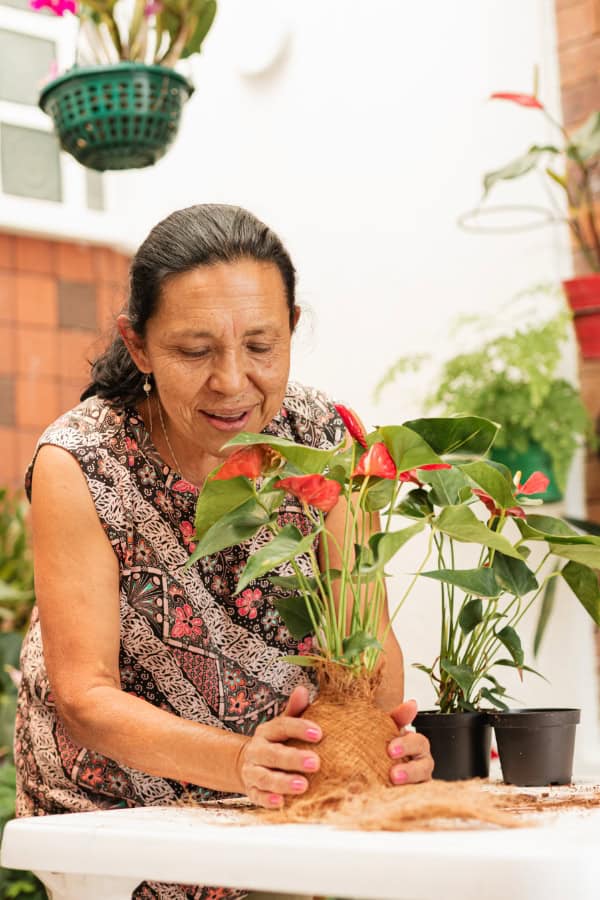Hospice Care for Terminal Cancer
Care Services
When Is the Right Time to Consider Hospice for a Cancer Patient? Deciding when to transition to hospice care can…















When Is the Right Time to Consider Hospice for a Cancer Patient?
Deciding when to transition to hospice care can be a deeply emotional and challenging decision. However, choosing hospice at the right time allows patients to focus on comfort, dignity, and meaningful moments with loved ones. Recognizing the appropriate time to consider hospice ensures that patients receive the compassionate support they need during the most critical stages of their illness.
You might consider hospice care when:
- Cancer treatments are no longer effective, and the disease continues to progress.
- The patient experiences significant pain, fatigue, or other symptoms that interfere with quality of life.
- The focus shifts from curative treatments to prioritizing comfort and managing symptoms.
Hospice care ensures patients receive expert, personalized care to alleviate physical and emotional suffering during their final stages.
How Can Hospice Help End-Stage Cancer Patients?
Hospice care for cancer patients is meticulously designed to address the unique challenges of end-stage cancer, providing relief from pain and symptoms while supporting the emotional and spiritual needs of both patients and their families. This compassionate approach ensures that patients can spend their remaining time in peace and dignity.
Hospice can help by:
- Pain Management: Providing medications and therapies tailored to reduce chronic or severe cancer pain.
- Symptom Relief: Managing nausea, fatigue, breathing difficulties, and other symptoms associated with advanced cancer.
- Emotional Support: Offering counseling to ease fear, anxiety, or grief as patients approach the end of life.
- Dignity and Peace: Ensuring that patients are cared for in a way that honors their wishes and respects their values.
This care allows patients to live their remaining time with as much comfort and meaning as possible.
How Can Hospice Help the Family of a Cancer Patient?
The journey of caring for a loved one with terminal cancer can be physically and emotionally exhausting. Hospice care provides families with the resources and support they need to navigate this challenging time, ensuring that both patients and their families receive the compassionate assistance necessary to cope with the demands of end-of-life care.
Hospice services for families include:
- Education and Guidance: Helping families understand disease progression, symptom management, and end-of-life planning.
- Emotional Counseling: Providing a safe space to process feelings of grief, fear, or helplessness.
- Respite Care: Offering caregivers a chance to rest while ensuring their loved one is well cared for.
- Bereavement Support: Supporting families with grief counseling and resources after their loved one’s passing.
Hospice empowers families to focus on creating meaningful memories rather than feeling overwhelmed by caregiving responsibilities.
How Can I Approach the Hospice Discussion?
Talking about hospice care can feel overwhelming, but it’s a critical step in ensuring that your loved one’s wishes are honored and their comfort is prioritized. Approaching this conversation with sensitivity and empathy helps maintain trust and facilitates an open dialogue about end-of-life care preferences.
Tips for approaching the conversation:
- Choose the Right Time and Place: Find a quiet, private setting where you can have an open and uninterrupted discussion.
- Be Compassionate and Honest: Express your concerns gently and focus on their comfort and well-being.
- Ask About Their Wishes: Encourage your loved one to share their preferences for care and what matters most to them.
- Involve a Professional: Consider having a hospice provider or healthcare professional join the discussion to address questions or fears.
Approaching this topic with care and empathy ensures that the conversation remains focused on supporting your loved one’s needs.
Questions to Ask Your Doctor About End-Stage Cancer and Hospice Care
Asking your doctor the right questions can help you understand your options and feel confident in choosing hospice care for your loved one. Clear and informed discussions with healthcare professionals ensure that decisions align with the patient’s values and medical needs.
Key questions to ask include:
- What is the expected progression of the disease?
- How will hospice care manage my loved one’s pain and symptoms?
- Are there additional treatments that would improve comfort without prolonging suffering?
- How does hospice care support families and caregivers?
These questions can guide you toward making decisions that align with your loved one’s values and preferences.
Cancer & Hospice: How to Know When to Call and What You Can Expect
Knowing when to call hospice can feel uncertain, but understanding the signs can help you make the right decision at the right time. Transitioning to hospice care ensures that your loved one receives the compassionate support they need to maintain comfort and dignity during their final stages.
You should call hospice if:
- Cancer treatments are no longer improving quality of life.
- The patient’s symptoms, such as pain or fatigue, are becoming harder to manage.
- There is a desire to focus on comfort and dignity rather than aggressive interventions.
When you call hospice, you can expect:
- A comprehensive assessment of your loved one’s needs.
- A personalized care plan that includes pain relief, symptom management, and emotional support.
- Ongoing guidance and updates from a dedicated hospice team.
Hospice Eligibility for Cancer Patients
Eligibility for hospice care ensures that patients with terminal cancer receive the specialized support they need during their final stages. Understanding the criteria for hospice care helps in making informed decisions that prioritize comfort and quality of life.
A cancer patient may qualify for hospice if:
- The disease has progressed despite treatment, with no further curative options available.
- Their physician estimates a life expectancy of six months or less.
- Symptoms such as severe pain, weight loss, or declining mobility indicate significant progression of the disease.
By meeting eligibility criteria, patients can access comfort-focused care tailored to their unique needs.
Why Is Hospice Care Important?
Hospice care for terminal cancer patients provides a crucial layer of support, offering relief from suffering while fostering meaningful connections during the final stages of life. This compassionate approach transforms the end-of-life experience, ensuring that both patients and their families receive the support and care they need.
Hospice care is important because it:
- Relieves pain and distressing symptoms.
- Supports patients in maintaining dignity and autonomy.
- Empowers families with resources and emotional guidance.
- Creates space for patients to focus on their relationships and legacy.
Palliative Care for Cancer Patients—What We Should Know
Palliative care offers symptom relief and emotional support at any stage of cancer, whether alongside treatment or during end-of-life care. This approach ensures that patients receive comprehensive care that addresses both their physical symptoms and emotional needs throughout their cancer journey.
What you should know:
- Palliative care includes treatments for pain, nausea, fatigue, and emotional distress.
- It is available regardless of the patient’s prognosis or treatment goals.
- Families benefit from guidance, counseling, and respite support.
A Guide to Terminal Cancer and Where to Find Support
Terminal cancer presents unique challenges for patients and families, but finding the right support can ease the journey and create opportunities for meaningful moments. Understanding the available care options and support resources ensures that patients and their families feel empowered and connected throughout their experience.
Support resources include:
- Hospice and palliative care providers specializing in cancer care.
- Counseling services for emotional and spiritual support.
- Community and online support groups for patients and caregivers.
Understanding these options ensures patients and families feel empowered and connected throughout their experience.